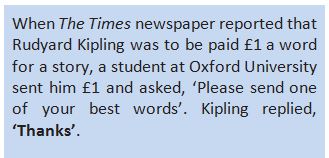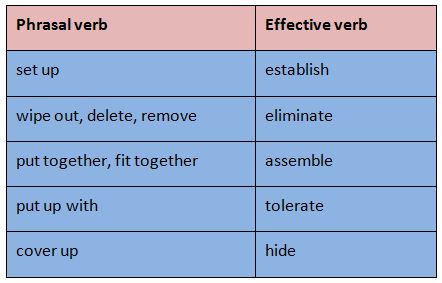
Scientists Must Write- 1


Be fastidious… Be specific
Dr Saurabh Chhatre
Writing is an integral part of science. Unfortunately our school curriculum includes no formal training in the art of writing even for the science branches. The irony of our education system is – We teach our graduates and scientists to use instruments and variety of techniques, many of which we know they would never use in their working lives; but we do not teach them an important skill of writing which they will be using every day – as students, and in any career based on their studies. They will be using their writing skills right from the lab notebook to their academic essays and publishing research papers in scientific journals.
Noteworthy characteristics of scientific writing
An effective and convincing scientific writing is always concise, expressing views in a very clear and straightforward manner. It does not contain unnecessary (though scientifically correct) details. The views expressed in such article are impartial, logically structured and always supported by appropriate evidences.
- Step one – Gather information with help of the Serving Men
Take a notebook or blank A4 size paper. First write the possible title (at least 2-3 options) of the write-up followed by “who is your target reader?” Your reader may be a science student or an expert in the subject or even an educated common man well-exposed to internet medium. Once you are done with these, anticipate your reader’s questions. Curious readers of course are always keen to understand the subject. They want relevant information – well organised, clearly presented, and with sufficient explanation. If you could interact with them, they would ask you one-word questions just like a curious child. Rudyard Kipling, a famous poet, lists those one-word questions as The Serving Men. They are:
What? Why? and When?
And How? Where? and Who?
Speciality of these one-word questions is you can never answer these questions in just ‘yes’ or ‘no’. Record or note down your answers as relevant points that come to mind. They will lead to further questions…and further questions; and you will find that you know much more about the subject than you at first supposed.Investing a few moments in thoughts and reflections, you can usually make a succession of relevant notes. You may use some of them as topics for separate paragraphs in your composition, whilst a few of remaining may act as supporting ideas, facts and illustrations. You may quarantine a few points in your final selection of content, either because they provide unnecessary details or because you select better examples.
- Step two – Select right candidates
Choosing adequate set of words and phrases is very important for effective scientific writing. Any thesaurus or a dictionary provides plenty of synonyms and substitutes for a particular word or phrase. It is you, the writer, to select the most appropriate candidate, and for that the writer should be very clear about the exact meaning or feeling that he intends to express.

The academicians or the scientists are expected to inculcate some habits and avoid a few in order to shape an impactful write-up.

Avoid usage of short forms
In scientific writing, avoid contractions, short forms (commonly used in parlance), clichés, colloquialisms and the slang words. If the writer is keen to use abbreviations, at least he should mention the full form when the abbreviated word appear first in the article. Use of contractions (can’t, wouldn’t, isn’t) or short forms of words (fridge, auto) signal informality and academic writing takes place in what is considered a formal context.
Choose effective and specific verbs
In general, academic writers prefer effective verbs to phrasal verbs (verb along with a preposition), which are very common in spoken or more casual uses of English. Following table illustrates some common ‘phrasal verbs’ used by the science writers, which can be better replaced with the ‘effective verbs’.

In any scientific write-up, especially in Results and Observations sections, writer has to typically present results of the study in comparative and repetitive manner, and hence may have to use same verbs or phrases again and again. This brings a kind of monotony to the manuscript. If writer is well equipped with vocabulary of “strong and specific verbs”, he can escape himself from the embarrassing situation. If you are a science student, inculcate the habit of collection of strong and specific verbs such as assert, outline, claim, argue, demonstrate, infer, conclude, reason, postulate and illustrate.
Avoid superfluity
Conciseness is one of the most important characteristics of an ideal scientific article. A scientist in you believes in the specificity and so is your reader. To write an effective essay, you should learn to write precisely and concisely, using only as many words as are necessary to convey what you want to communicate. Avoid adding words just to lengthen your essay or create fancy expressions. It is far more important to get your message across effectively and in concise manner.
Because first and last words attract most attention, never begin or end a paragraph with unimportant words. In particular, omit superfluous introductory phrases. Following are some typical superfluous phrases used by the science students:
- First let us consider that …..
- If we take a look at all the results ……
- Taking all the results into consideration …..
- The investigators would like to draw your attention to ….
- An interesting example that should be noted in this context is …..
Superfluous introductory and connecting phrases distract attention of the reader and obscure your message. The change of topic is clearly sign-posted by the break between paragraphs, and in scientific and technical writing the new topic is usually introduced directly and forcefully in the first few words of each paragraph.

References:
Barrass R (2005). Scientists Must Write – A guide to better writing for scientists, engineers and students. Second edition, Taylor & Francis Group, New York, NY 10001.
Seow R. Using Appropriate Words in Academic Essays. National University of Singapore.


Excellent information.
Thanks a lot sir for sharing your valuable thoughts.
Thank you very much Sir.
Excellent article! Really helpful
Well explained and to the point. Covers minute details in an immaculate manner!
Thanks a lot Mam.
Very good post
Thank you Sir.
Sir, are you going to write any more blogs on the same topic?
Yes, I would love to share my views on scientific writing in a series of blogs. This is a very specialised field and especially of my interest.
Thanks.